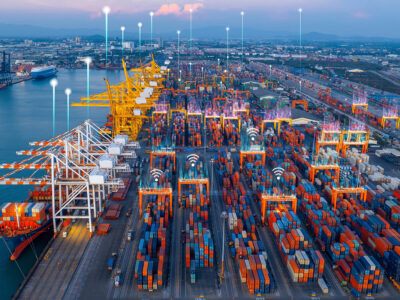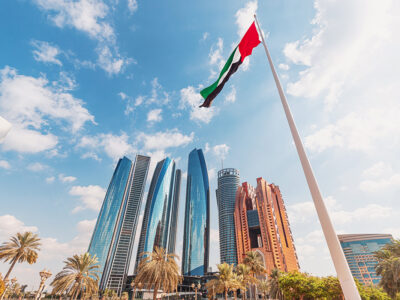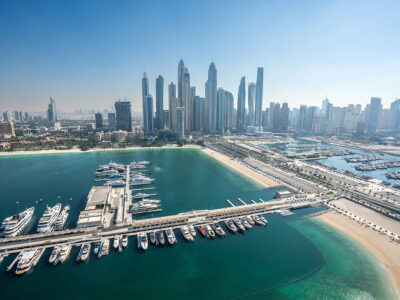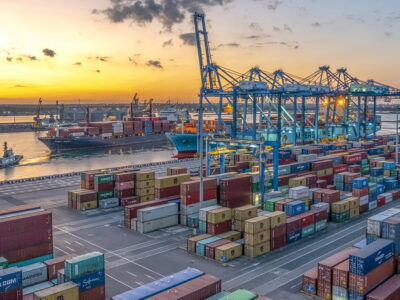The war in Ukraine and the ensuing economic conflict between Russia and the West have sent inflation and prices skyrocketing, leaving governments, businesses and consumers struggling to cope. The double-digit inflation we are witnessing in most European nations is considered the highest rate since 1999.
Europe is suffering the most due to the energy crisis. Markets are struggling to find alternatives for their energy imports. Europe’s biggest importers include Germany ($23.6 billion), Poland ($14.7 billion) and the Netherlands ($11.4 billion). While it relies on Russia for 40 percent of its natural gas and 27 percent of its oil, the EU is committed to decreasing its dependence on Russian energy by two thirds in 2022 and 100 percent by 2030, according to the European Commission.
However, a significant portion of energy seems to be indispensable for the time being, creating a disturbance in the market. Some EU countries have already started using next year’s energy reserves, with no projections over the level of supplies during the same period.
In an effort to find a remedy through alternative sources of gas, several energy partnerships have been signed between Middle East and Africa (MEA) and European nations, including agreements between the UAE and France, Saudi Arabia and Greece, and Algeria and Italy.
Furthermore, the UAE is partnering with Spain on Green Hydrogen and with Greece on LNG. Through oil giant Aramco, Saudi Arabia is also exploring opportunities with Poland. Qatar supplied 24 percent of Europe’s LNG imports in 2021, notably through active cooperation with Great Britain and Belgium. Having recently expressed its intention to increase gas production, Qatar is entering an LNG agreement with Germany, which is building two LNG terminals.
Forging more of such partnerships and accelerating the pace of implementation seems one of the few viable options for Europe to cool down inflation. Given a smooth transition to MEA energy and without political tensions specifically in countries of significant economic weight, the MEA region—tapping into its significant energy reservoir—has the capacity to assist Europe emerge from the energy and inflation crises.
The African continent also represents a potential partner and an emerging source of energy that can help restore stability to European markets. Algeria saw a rise in LNG shipments to Europe from 40 billion cubic meters (bcm) in 2020 to 53 bcm in 2021. Experts expect a further increase within this year.
Undergoing significant development, Egypt is also expected to produce 2.7 billion cubic feet per day (bcf/d) through the Zohr gas field. The country possesses over 77 trillion cubic feet (tcf) of gas reserves and has turned into a net exporter of LNG.
Elsewhere in Africa, the Mozambique Rovuma LNG project is anticipated to begin onshore production in 2025. Nigeria has more than 200 tcf in natural gas reserves with expectations of supply growth through 2025.
In the wake of global financial crises of this magnitude, central banks have no alternatives but to increase interest rates. We have seen steep rates set by the Federal Reserve, Bank of Canada and Bank of England, all of which indicated more hikes to be expected this year. The European Central Bank has raised interest rates for the first time in approximately a decade.
The tightening of financial conditions may very likely be chaotic, putting the financial system’s resilience to the test and placing a lot of pressure on developing economies in particular. Given inflation has hit multi-decade highs, public support for restrictive monetary policy is currently strong, but might be threatened by rising socio-economic repercussions such as high unemployment.
Despite indications of already-poor liquidity, rapid policy rate tightening might cause risk asset values to fall further sharply, impacting emerging market assets and equities.
The negative impact of all that on equity markets and stock prices was expected, considering the hike in borrowing costs driven by high levels of interest rates, particularly on government bonds.
Inflation is not likely to continue its upward trajectory as most European countries are actively seeking alternatives to curb the surge in prices. The MEA region can play an integral role, backing Europe’s efforts to diversify its energy sources and alleviate the impact of inflation on EU citizens.
Hasnae Taleb, Award-winning Stock Trader & Investor








